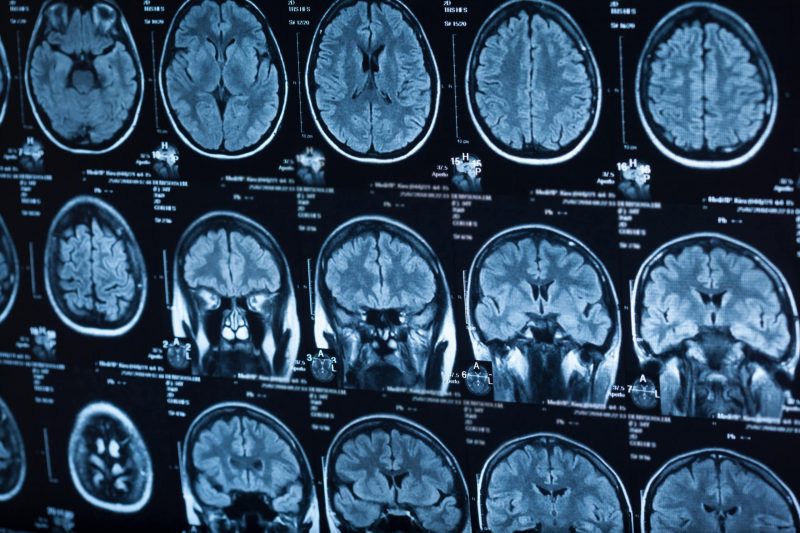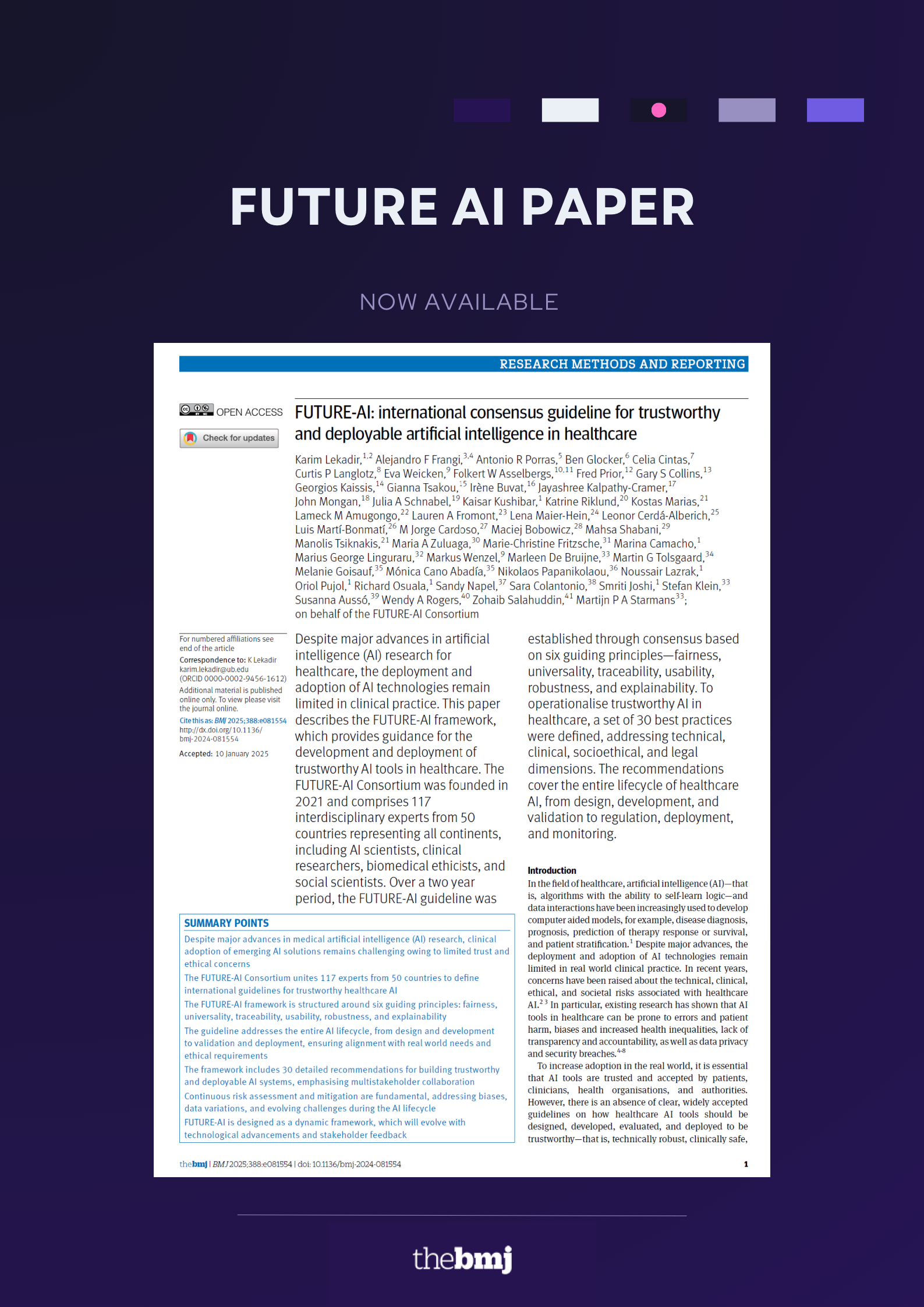Today, we kicked off the FUTURE-AI Webinar Series with an insightful talk by Professor Gary Collins from University o...
Recent news and events
FUTURE-AI: international consensus guideline for trustworthy and deployable artificial intelligence in healthcare
This paper describes the FUTURE-AI guideline as the first international consensus framework for guiding the development and deployment of trustworthy AI tools in healthcare. The recommendations cover the entire lifecycle of medical AI, from design, development and validation to regulation, deployment, and monitoring.
FUTURE AI Principles
1
Fairness
The Fairness principle states that medical AI tools should maintain the same performance across individuals and ...
Learn More2
Universality
The Universality principle states that a medical AI tool should be generalisable outside the controlled environment where it wa...
Learn More3
Traceability
The Traceability principle states that medical AI tools should be developed together with mechanisms for documenting and monito...
Learn More4
Usability
The usability principle states that the end users should be able to use an AI tool to achieve a clinical goal efficiently and s...
Learn More5
Robustness
The robustness principle refers to the ability of a medical AI tool to maintain its performance and accuracy under expected or ...
Learn More6
Explainability
The explainability principle states that medical AI tools should provide clinically meaningful information about the logic behi...
Learn More
Is your health care AI technology FUTURE-AI ready?
The FUTURE-AI assessment checklist consists of concrete and actionable questions that will guide developers, evaluators and other stakeholders in delivering medical AI tools that are trustworthy and optimised for real-world practice.







